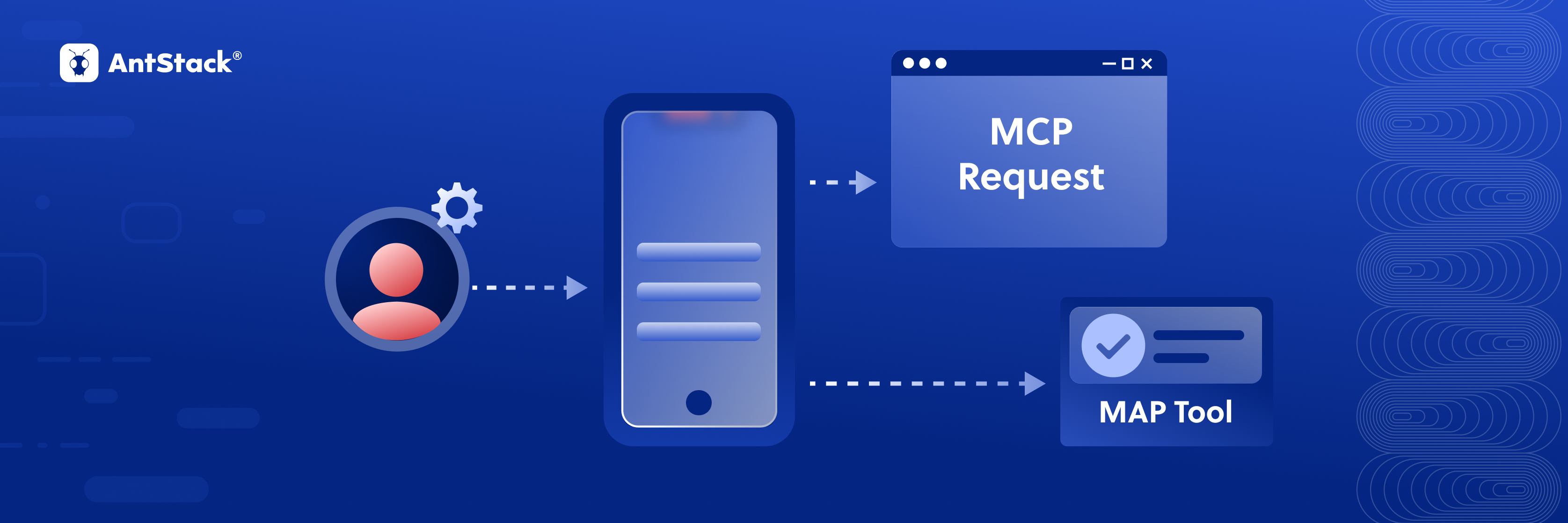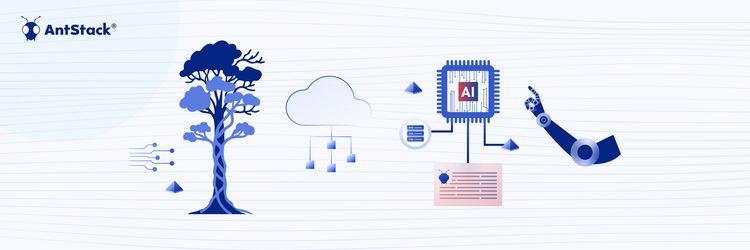Recently, I started exploring MCPs and their utility in the whole GenAI space. It made total sense to have a uniform interface to be sending requests and receiving responses to and from the tools you use or build for your Large Language Model. So, I thought, let me build my own MCP. More like, convert an agent that I built with Strands Agents SDK to an MCP.
Let me just rewind a little and give some introduction about a few of the terms I have used so far. If you are already aware of what these terms mean, go ahead and skip to the next section!
Firstly, what is an MCP?
MCP stands for Model Context Protocol. Its a protocol created by Anthropic to create a uniform format to share information to/from your LLM. Without a uniform format for this, you might have had to create multiple versions of the same tool to integrate with each of the LLMs you might be using.
Now that that’s out of the way, let me introduce you to Strands Agents SDK. Strands Agents SDK is a simple-to-use, code-first framework for building agents built by AWS. It is / has:
- Model & provider agnostic - works with any LLM provider
- Simple multi-agent primitives - built in support for Agent-to-Agent workflows
- Great AWS integrations - Deploy to lambda, EKS, etc., easily
- Leverages model reasoning to plan, orchestrate tasks, and reflect on goals
The agent that I built with Strands Agents SDK is a database agent. Based on keywords in the incoming natural language request, it performs specific analytical SQL queries to fetch the necessary data. It then summarizes the data in a human readable, natural language response which is sent to the user. Here is the code for the agent -
from strands import Agent
import json
import os
import psycopg2
from psycopg2.extras import RealDictCursor
from strands.models.openai import OpenAIModel
from typing import Dict, Any
from datetime import datetime, timedelta
from contextlib import contextmanager
import logging
# Configure logging for strands and this module
logging.getLogger("strands").setLevel(logging.DEBUG)
logger = logging.getLogger(__name__)
logger.setLevel(logging.DEBUG)
# Configure logging format
if not logger.handlers:
handler = logging.StreamHandler()
formatter = logging.Formatter(
'%(asctime)s | %(levelname)s | %(name)s | %(funcName)s:%(lineno)d | %(message)s'
)
handler.setFormatter(formatter)
logger.addHandler(handler)
def get_database_credentials():
"""Get database credentials from environment variables."""
logger.debug("Retrieving database credentials from environment variables")
required_vars = ['DB_HOST', 'DB_PORT', 'DB_NAME', 'DB_USER', 'DB_PASSWORD']
missing_vars = [var for var in required_vars if not os.environ.get(var)]
if missing_vars:
logger.error(f"Missing required environment variables: {', '.join(missing_vars)}")
raise Exception(f"Missing required environment variables: {', '.join(missing_vars)}")
creds = {
'host': os.environ['DB_HOST'],
'database': os.environ['DB_NAME'],
'user': os.environ['DB_USER'],
'password': os.environ['DB_PASSWORD'],
'port': os.environ.get('DB_PORT', '5432')
}
logger.debug(f"Database credentials loaded for host: {creds['host']}, database: {creds['database']}")
return creds
def get_openai_api_key():
"""Get OpenAI API key from environment variables."""
logger.debug("Retrieving OpenAI API key from environment variables")
api_key = os.environ.get('OPENAI_KEY')
if not api_key:
logger.error("OpenAI API key not found in environment variables")
raise Exception("OpenAI API key not found. Set OPENAI_API_KEY or OPENAI_KEY environment variable.")
logger.debug("OpenAI API key successfully retrieved")
return api_key
@contextmanager
def get_db_connection():
"""Database connection context manager."""
conn = None
try:
logger.debug("Establishing database connection")
creds = get_database_credentials()
conn = psycopg2.connect(
host=creds['host'],
port=creds['port'],
database=creds['database'],
user=creds['user'],
password=creds['password'],
sslmode='require',
connect_timeout=10,
cursor_factory=RealDictCursor
)
logger.debug(f"Database connection established successfully to {creds['host']}:{creds['port']}/{creds['database']}")
yield conn
except Exception as e:
logger.error(f"Database connection failed: {str(e)}")
raise Exception(f"Database connection failed: {str(e)}")
finally:
if conn:
logger.debug("Closing database connection")
conn.close()
def execute_revenue_query(start_date: str = None) -> Dict[str, Any]:
"""Execute revenue summary query."""
if not start_date:
start_date = (datetime.now() - timedelta(days=30)).strftime('%Y-%m-%d')
logger.debug(f"Using default start_date: {start_date}")
else:
logger.debug(f"Using provided start_date: {start_date}")
logger.debug("Executing revenue summary query")
with get_db_connection() as conn:
with conn.cursor() as cursor:
sql = """
SELECT
DATE(o.created_at) as order_date,
COUNT(o.id) as order_count,
SUM(o.total) as daily_revenue,
AVG(o.total) as avg_order_value,
COUNT(DISTINCT o.user_id) as unique_customers
FROM orders o
WHERE o.status IN ('completed', 'delivered')
AND o.created_at >= %s
GROUP BY DATE(o.created_at)
ORDER BY order_date DESC
LIMIT 30
"""
cursor.execute(sql, [start_date])
rows = cursor.fetchall()
logger.debug(f"Revenue query returned {len(rows)} rows")
total_revenue = sum(float(row['daily_revenue'] or 0) for row in rows)
total_orders = sum(row['order_count'] or 0 for row in rows)
logger.debug(f"Calculated total revenue: ${total_revenue:,.2f}, total orders: {total_orders}")
return {
'total_revenue': total_revenue,
'total_orders': total_orders,
'average_daily_revenue': total_revenue / len(rows) if rows else 0,
'days_analyzed': len(rows),
'daily_data': [
{
'date': row['order_date'].isoformat(),
'revenue': float(row['daily_revenue'] or 0),
'orders': row['order_count'] or 0,
'avg_order_value': float(row['avg_order_value'] or 0)
} for row in rows[:7] # Last 7 days detail
]
}
def execute_product_query(start_date: str = None, category: str = None) -> Dict[str, Any]:
"""Execute product sales query."""
if not start_date:
start_date = (datetime.now() - timedelta(days=90)).strftime('%Y-%m-%d')
logger.debug(f"Using default start_date for products: {start_date}")
else:
logger.debug(f"Using provided start_date for products: {start_date}")
if category:
logger.debug(f"Filtering by category: {category}")
logger.debug("Executing product sales query")
with get_db_connection() as conn:
with conn.cursor() as cursor:
sql = """
SELECT
p.name,
p.category,
SUM(oi.quantity) as total_sold,
SUM(oi.quantity * (oi.price - COALESCE(oi.discount_amount, 0))) as total_revenue,
AVG(oi.price) as avg_price,
COUNT(DISTINCT o.user_id) as unique_buyers
FROM products p
JOIN order_items oi ON p.id = oi.product_id
JOIN orders o ON oi.order_id = o.id
WHERE o.status IN ('completed', 'delivered')
AND o.created_at >= %s
"""
params = [start_date]
if category:
sql += " AND p.category = %s"
params.append(category)
sql += """
GROUP BY p.id, p.name, p.category
ORDER BY total_revenue DESC
LIMIT 15
"""
cursor.execute(sql, params)
rows = cursor.fetchall()
logger.debug(f"Product query returned {len(rows)} products")
total_revenue = sum(float(row['total_revenue'] or 0) for row in rows)
total_units = sum(row['total_sold'] or 0 for row in rows)
logger.debug(f"Product totals - revenue: ${total_revenue:,.2f}, units sold: {total_units}")
return {
'total_products_analyzed': len(rows),
'total_revenue': total_revenue,
'total_units_sold': total_units,
'top_products': [
{
'name': row['name'],
'category': row['category'],
'revenue': float(row['total_revenue'] or 0),
'units_sold': row['total_sold'] or 0,
'avg_price': float(row['avg_price'] or 0)
} for row in rows[:10]
]
}
def execute_customer_query(start_date: str = None, min_amount: float = None) -> Dict[str, Any]:
"""Execute customer orders query."""
if not start_date:
start_date = (datetime.now() - timedelta(days=60)).strftime('%Y-%m-%d')
logger.debug(f"Using default start_date for customers: {start_date}")
else:
logger.debug(f"Using provided start_date for customers: {start_date}")
if min_amount:
logger.debug(f"Filtering by minimum amount: ${min_amount}")
logger.debug("Executing customer orders query")
with get_db_connection() as conn:
with conn.cursor() as cursor:
sql = """
SELECT
o.id,
o.total,
o.status,
o.created_at,
u.first_name || ' ' || u.last_name as customer_name,
u.email,
COUNT(oi.id) as item_count
FROM orders o
JOIN users u ON o.user_id = u.id
LEFT JOIN order_items oi ON o.id = oi.order_id
WHERE o.created_at >= %s
"""
params = [start_date]
if min_amount:
sql += " AND o.total >= %s"
params.append(min_amount)
sql += """
GROUP BY o.id, o.total, o.status, o.created_at, u.first_name, u.last_name, u.email
ORDER BY o.total DESC
LIMIT 20
"""
cursor.execute(sql, params)
rows = cursor.fetchall()
logger.debug(f"Customer query returned {len(rows)} orders")
total_value = sum(float(row['total'] or 0) for row in rows)
logger.debug(f"Customer orders total value: ${total_value:,.2f}")
return {
'total_orders_analyzed': len(rows),
'total_value': total_value,
'average_order_value': total_value / len(rows) if rows else 0,
'high_value_orders': [
{
'order_id': row['id'],
'customer_name': row['customer_name'],
'total': float(row['total'] or 0),
'status': row['status'],
'date': row['created_at'].strftime('%Y-%m-%d'),
'items': row['item_count'] or 0
} for row in rows[:10]
]
}
def analyze_business_request(user_prompt: str) -> Dict[str, Any]:
"""Analyze user request and execute appropriate queries."""
logger.debug(f"Analyzing business request: {user_prompt}")
# Determine what data to fetch based on the prompt
prompt_lower = user_prompt.lower()
results = {
'request': user_prompt,
'queries_executed': [],
'data': {}
}
# Execute relevant queries based on keywords
if any(word in prompt_lower for word in ['revenue', 'sales', 'performance', 'trends', 'summary', 'business']):
logger.debug("Revenue-related keywords detected, executing revenue query")
results['data']['revenue'] = execute_revenue_query()
results['queries_executed'].append('revenue_summary')
if any(word in prompt_lower for word in ['product', 'bestseller', 'category', 'inventory', 'items']):
logger.debug("Product-related keywords detected, executing product query")
results['data']['products'] = execute_product_query()
results['queries_executed'].append('product_sales')
if any(word in prompt_lower for word in ['customer', 'order', 'high value', 'vip', 'spending']):
logger.debug("Customer-related keywords detected, executing customer query")
# Look for amount mentions
min_amount = None
if '$' in user_prompt or 'over' in prompt_lower:
# Try to extract amount (simple regex could be added here)
if '200' in user_prompt:
min_amount = 200
logger.debug("Detected minimum amount filter: $200")
elif '500' in user_prompt:
min_amount = 500
logger.debug("Detected minimum amount filter: $500")
results['data']['customers'] = execute_customer_query(min_amount=min_amount)
results['queries_executed'].append('customer_orders')
# If no specific queries matched, get a general business overview
if not results['queries_executed']:
logger.debug("No specific query detected, running general business overview")
results['data']['revenue'] = execute_revenue_query()
results['data']['products'] = execute_product_query()
results['queries_executed'] = ['revenue_summary', 'product_sales']
logger.debug(f"Completed analysis with queries: {results['queries_executed']}")
return results
def generate_business_insights(query_results: Dict[str, Any], user_prompt: str) -> str:
"""Generate business insights using the agent with real data."""
try:
logger.debug("Starting business insights generation")
openai_api_key = get_openai_api_key()
logger.debug("Initializing OpenAI model for insights generation")
model = OpenAIModel(
client_args={"api_key": openai_api_key},
model_id="gpt-4o",
params={"max_tokens": 2000, "temperature": 0.3}
)
logger.debug("OpenAI model initialized successfully")
# Create agent for analysis (no tools needed, just analysis)
logger.debug("Creating business analyst agent")
analyst = Agent(
system_prompt="""You are a senior business analyst. Analyze the provided data and give actionable insights.
Focus on:
- Key trends and patterns
- Performance highlights and concerns
- Actionable recommendations
- Executive-level summary
Be specific with numbers and provide context.""",
model=model
)
# Format the data for analysis
data_summary = f"""
User Request: {user_prompt}
Queries Executed: {', '.join(query_results['queries_executed'])}
DATA ANALYSIS:
"""
if 'revenue' in query_results['data']:
rev_data = query_results['data']['revenue']
data_summary += f"""
REVENUE PERFORMANCE:
- Total Revenue ({rev_data['days_analyzed']} days): ${rev_data['total_revenue']:,.2f}
- Total Orders: {rev_data['total_orders']:,}
- Average Daily Revenue: ${rev_data['average_daily_revenue']:,.2f}
Recent Daily Performance:
"""
for day in rev_data['daily_data'][:5]:
data_summary += f" • {day['date']}: ${day['revenue']:,.2f} ({day['orders']} orders)\n"
if 'products' in query_results['data']:
prod_data = query_results['data']['products']
data_summary += f"""
PRODUCT PERFORMANCE:
- Products Analyzed: {prod_data['total_products_analyzed']}
- Total Revenue: ${prod_data['total_revenue']:,.2f}
- Total Units Sold: {prod_data['total_units_sold']:,}
Top Products:
"""
for prod in prod_data['top_products'][:5]:
data_summary += f" • {prod['name']} ({prod['category']}): ${prod['revenue']:,.2f} - {prod['units_sold']} units\n"
if 'customers' in query_results['data']:
cust_data = query_results['data']['customers']
data_summary += f"""
CUSTOMER ANALYSIS:
- Orders Analyzed: {cust_data['total_orders_analyzed']}
- Total Value: ${cust_data['total_value']:,.2f}
- Average Order Value: ${cust_data['average_order_value']:,.2f}
High-Value Orders:
"""
for order in cust_data['high_value_orders'][:5]:
data_summary += f" • Order #{order['order_id']}: {order['customer_name']} - ${order['total']:,.2f}\n"
data_summary += "\n\nPlease provide comprehensive business insights and recommendations based on this data."
# Get analysis from the agent
logger.debug("Invoking analyst agent for insights generation")
analysis = analyst(data_summary)
logger.debug("Business insights generated successfully")
return str(analysis)
except Exception as e:
logger.error(f"Error generating business insights: {str(e)}")
return f"Data retrieved successfully, but analysis failed: {str(e)}\n\nRaw data: {json.dumps(query_results, indent=2, default=str)}"
def agentic_handler(event: Dict[str, Any], _context) -> Dict[str, Any]:
"""Lambda handler that actually executes database queries and provides insights."""
try:
user_prompt = event.get('prompt', 'Show me a business performance summary')
logger.debug(f"Lambda handler invoked with prompt: {user_prompt}")
logger.debug(f"Full event: {json.dumps(event, default=str)}")
# Step 1: Execute database queries based on the request
logger.debug("Step 1: Analyzing business request and executing queries")
query_results = analyze_business_request(user_prompt)
logger.debug(f"Queries executed: {query_results['queries_executed']}")
logger.debug(f"Data points collected: {len(query_results.get('data', {}))}")
# Step 2: Generate insights using the agent with real data
logger.debug("Step 2: Generating business insights from query results")
insights = generate_business_insights(query_results, user_prompt)
response = {
'statusCode': 200,
'headers': {
'Content-Type': 'application/json',
'Access-Control-Allow-Origin': '*'
},
'body': json.dumps({
'response': insights,
'queries_executed': query_results['queries_executed'],
'timestamp': datetime.utcnow().isoformat(),
'data_points': len(query_results.get('data', {}))
})
}
logger.debug(f"Lambda handler completed successfully with status code: {response['statusCode']}")
return response
except Exception as e:
logger.error(f"Lambda handler error: {str(e)}", exc_info=True)
error_response = {
'statusCode': 500,
'headers': {
'Content-Type': 'application/json',
'Access-Control-Allow-Origin': '*'
},
'body': json.dumps({
'error': str(e),
'timestamp': datetime.utcnow().isoformat()
})
}
logger.error(f"Lambda handler failed with status code: {error_response['statusCode']}")
return error_response
I wanted to convert this agent which was deployed on a AWS Lambda into an MCP “Server”. Server is in quotes because it's only a server in the sense of client and server, but in the perspective of infrastructure, it is still serverless. This architecture makes the most sense because in most cases, MCP servers are only called when they are needed so they do not need to be constantly running, waiting to be called.
Some of the things that I needed to ensure my agent had to do to become an MCP server is to receive the request in the way the LLM sends. Here is the structure of a request sent in the Model Context Protocol -
{
jsonrpc: "2.0";
id: string | number;
method: string;
params?: {
[key: string]: unknown;
};
}
The Model Context Protocol also has a very specific lifecycle for client-server connections that ensures proper capability negotiation and state management. There are 3 stages in the entire lifecycle.
- Initialization - Capability negotiation and protocol version agreement
- Operation - Normal protocol communication
- Shutdown - Graceful termination of the connection
As part of the initialization stage, the client must send an initialize request to the server. An example initialize request looks as follows -
{
"jsonrpc": "2.0",
"id": 1,
"method": "initialize",
"params": {
"protocolVersion": "2024-11-05",
"capabilities": {
"roots": {
"listChanged": true
},
"sampling": {},
"elicitation": {}
},
"clientInfo": {
"name": "ExampleClient",
"title": "Example Client Display Name",
"version": "1.0.0"
}
}
}
This is what an example response to the MCP Client should look like for the initialize request -
{
"jsonrpc": "2.0",
"id": 1,
"result": {
"protocolVersion": "2024-11-05",
"capabilities": {
"logging": {},
"prompts": {
"listChanged": true
},
"resources": {
"subscribe": true,
"listChanged": true
},
"tools": {
"listChanged": true
}
},
"serverInfo": {
"name": "ExampleServer",
"title": "Example Server Display Name",
"version": "1.0.0"
},
"instructions": "Optional instructions for the client"
}
}
Similarly, there are defined structures for the operation and shutdown phases. A detailed document on request-response definitions can be found here.
Considering the additional request requirements to build an MCP Server, this is the code I added to convert my agent to an MCP Server.
import json
from typing import Dict, Any, List, Optional
from query_agent_handler import (
analyze_business_request,
generate_business_insights,
execute_revenue_query,
execute_product_query,
execute_customer_query
)
class MCPServer:
"""MCP Server implementation for database queries"""
def __init__(self):
self.tools = self._define_tools()
def _define_tools(self) -> List[Dict[str, Any]]:
"""Define available MCP tools"""
return [
{
"name": "query_business_data",
"description": "Query business data and get AI-powered insights",
"inputSchema": {
"type": "object",
"properties": {
"query": {
"type": "string",
"description": "Natural language query about business data"
}
},
"required": ["query"]
}
},
{
"name": "get_revenue_summary",
"description": "Get revenue summary for a specific time period",
"inputSchema": {
"type": "object",
"properties": {
"start_date": {
"type": "string",
"description": "Start date in YYYY-MM-DD format",
"format": "date"
}
}
}
},
{
"name": "get_product_performance",
"description": "Get product sales performance data",
"inputSchema": {
"type": "object",
"properties": {
"start_date": {
"type": "string",
"description": "Start date in YYYY-MM-DD format",
"format": "date"
},
"category": {
"type": "string",
"description": "Product category to filter by"
}
}
}
},
{
"name": "get_customer_orders",
"description": "Get customer order data",
"inputSchema": {
"type": "object",
"properties": {
"start_date": {
"type": "string",
"description": "Start date in YYYY-MM-DD format",
"format": "date"
},
"min_amount": {
"type": "number",
"description": "Minimum order amount to filter by"
}
}
}
}
]
def handle_initialize(self, params: Dict[str, Any]) -> Dict[str, Any]:
"""Handle MCP initialize request"""
return {
"protocolVersion": "2024-11-05",
"capabilities": {
"tools": {}
},
"serverInfo": {
"name": "database-agent",
"version": "1.0.0"
}
}
def handle_tools_list(self) -> Dict[str, Any]:
"""Handle tools/list request"""
return {"tools": self.tools}
def handle_tools_call(self, params: Dict[str, Any]) -> Dict[str, Any]:
"""Handle tools/call request"""
tool_name = params.get("name")
arguments = params.get("arguments", {})
try:
if tool_name == "query_business_data":
query = arguments.get("query", "Show me a business performance summary")
query_results = analyze_business_request(query)
insights = generate_business_insights(query_results, query)
return {
"content": [
{
"type": "text",
"text": insights
}
]
}
elif tool_name == "get_revenue_summary":
data = execute_revenue_query(arguments.get("start_date"))
return {
"content": [
{
"type": "text",
"text": json.dumps(data, indent=2, default=str)
}
]
}
elif tool_name == "get_product_performance":
data = execute_product_query(
arguments.get("start_date"),
arguments.get("category")
)
return {
"content": [
{
"type": "text",
"text": json.dumps(data, indent=2, default=str)
}
]
}
elif tool_name == "get_customer_orders":
data = execute_customer_query(
arguments.get("start_date"),
arguments.get("min_amount")
)
return {
"content": [
{
"type": "text",
"text": json.dumps(data, indent=2, default=str)
}
]
}
else:
raise ValueError(f"Unknown tool: {tool_name}")
except Exception as e:
return {
"content": [
{
"type": "text",
"text": f"Error executing {tool_name}: {str(e)}"
}
],
"isError": True
}
def process_request(self, request: Dict[str, Any]) -> Dict[str, Any]:
"""Process MCP JSON-RPC request"""
method = request.get("method")
params = request.get("params", {})
request_id = request.get("id")
try:
if method == "initialize":
result = self.handle_initialize(params)
elif method == "tools/list":
result = self.handle_tools_list()
elif method == "tools/call":
result = self.handle_tools_call(params)
else:
raise ValueError(f"Unknown method: {method}")
return {
"jsonrpc": "2.0",
"result": result,
"id": request_id
}
except Exception as e:
return {
"jsonrpc": "2.0",
"error": {
"code": -32603,
"message": str(e)
},
"id": request_id
}
def handler(event: Dict[str, Any], context) -> Dict[str, Any]:
"""Lambda handler for MCP protocol"""
try:
# Parse request body
if isinstance(event.get("body"), str):
body = json.loads(event["body"])
else:
body = event
# Check if this is an MCP request
if "jsonrpc" in body:
# Handle MCP protocol
mcp_server = MCPServer()
response_body = mcp_server.process_request(body)
else:
# Fallback to original handler for backward compatibility
from query_agent_handler import agentic_handler
return agentic_handler(event, context)
return {
"statusCode": 200,
"headers": {
"Content-Type": "application/json",
"Access-Control-Allow-Origin": "*"
},
"body": json.dumps(response_body)
}
except Exception as e:
print(f"Handler error: {str(e)}")
return {
"statusCode": 200, # MCP expects 200 even for errors
"headers": {
"Content-Type": "application/json",
"Access-Control-Allow-Origin": "*"
},
"body": json.dumps({
"jsonrpc": "2.0",
"error": {
"code": -32603,
"message": f"Internal error: {str(e)}"
},
"id": None
})
}
Testing an MCP Server can be done with the help of MCP Jam. It is a really nifty, easy-to-use tool that acts like a Postman for MCPs. It makes it easy to build and modify your MCP Server to ensure it works correctly.
In conclusion, it is really easy to build your own MCP Server. You almost never need to build your own MCP Client. You can use any LLM or MCP Jam to use your MCP Server. MCPs have a huge scope of development. You can get really creative with it and build really fun and useful tools. MCPs don’t always have to be built on top of agents. You can even build MCP tools that just do regular HTTP/REST calls. The sky is the limit!
You can find the entire codebase here.









